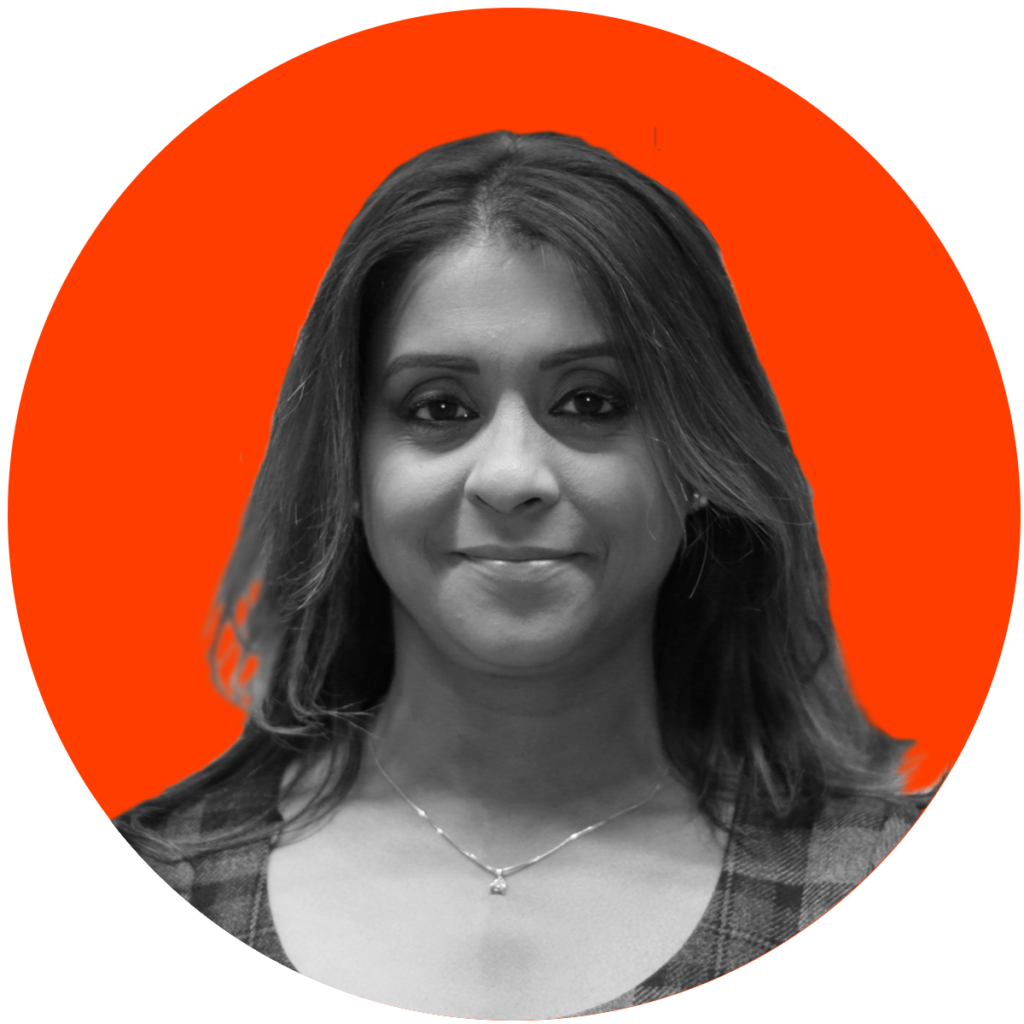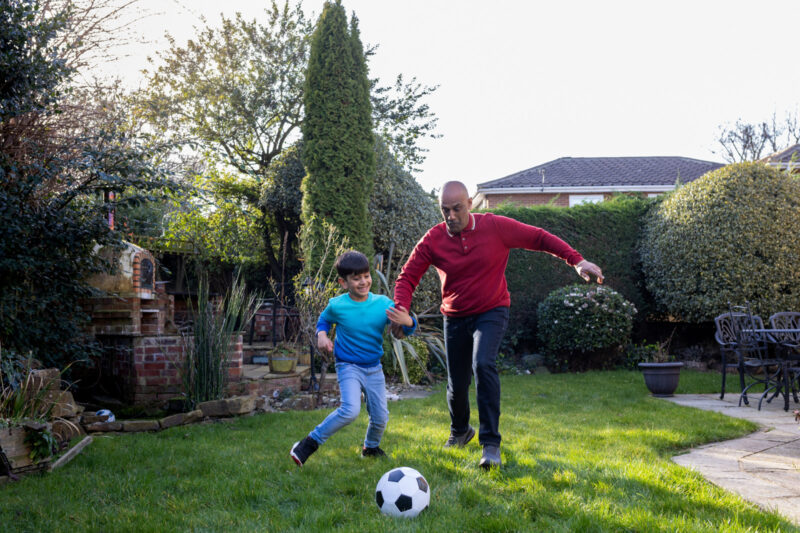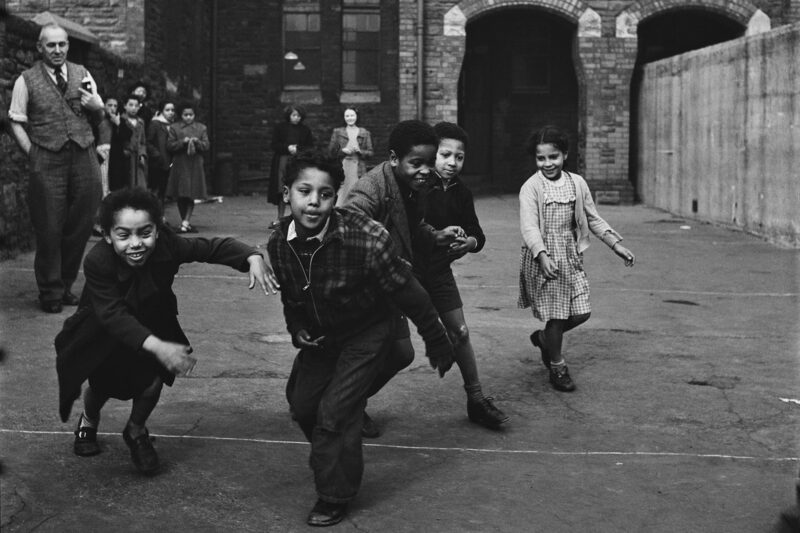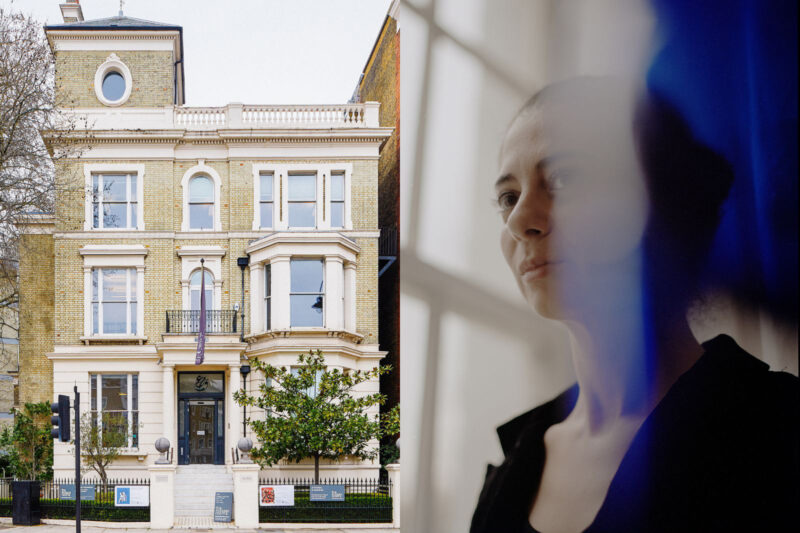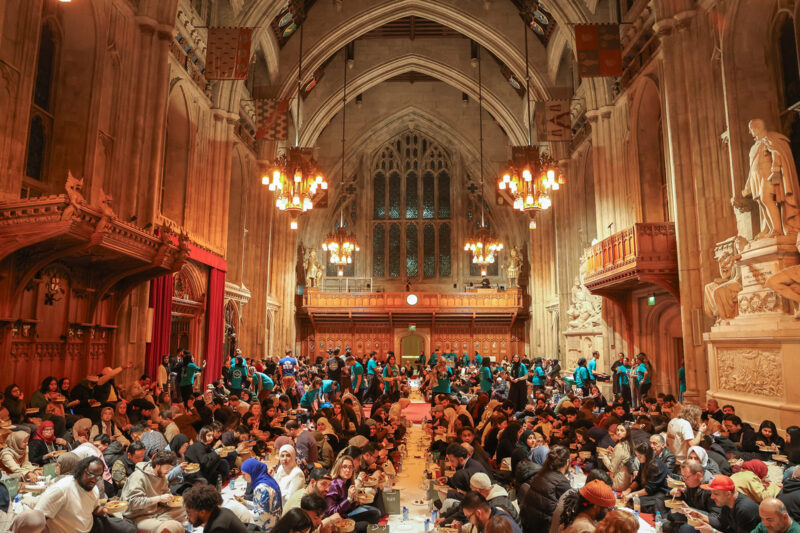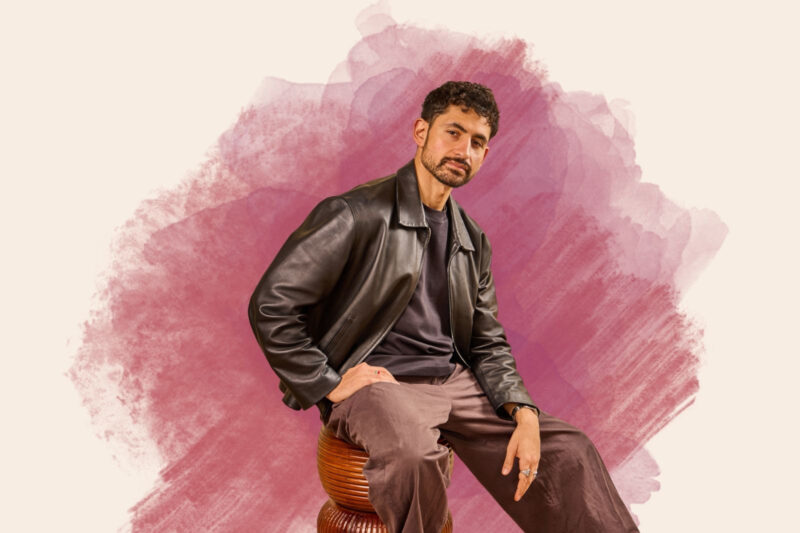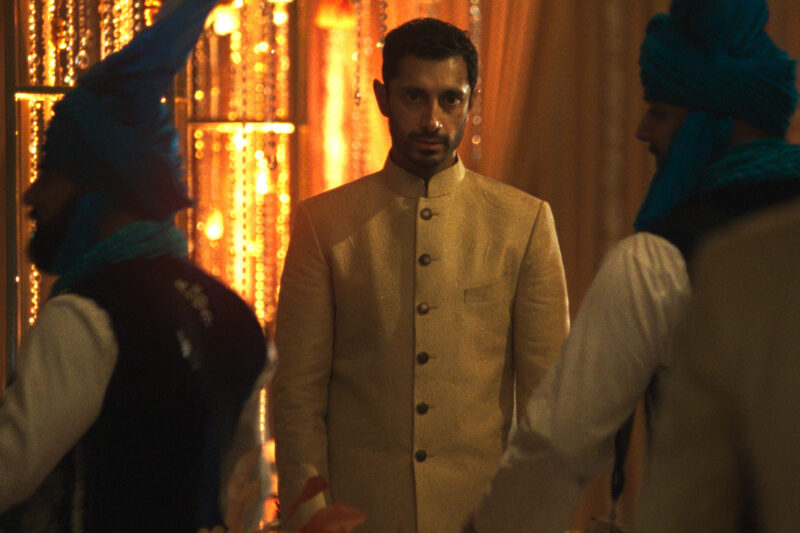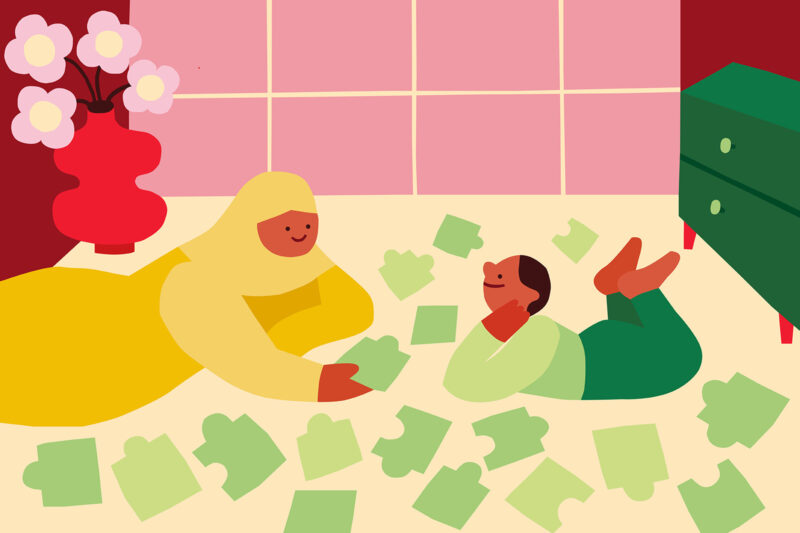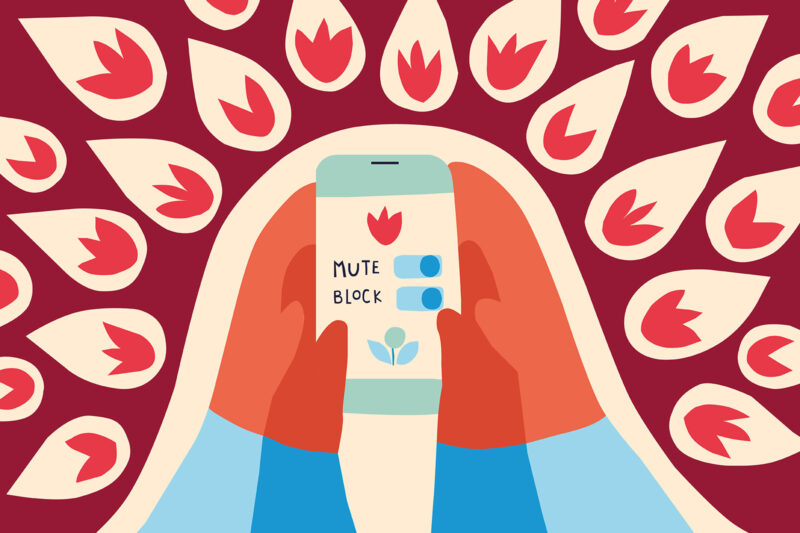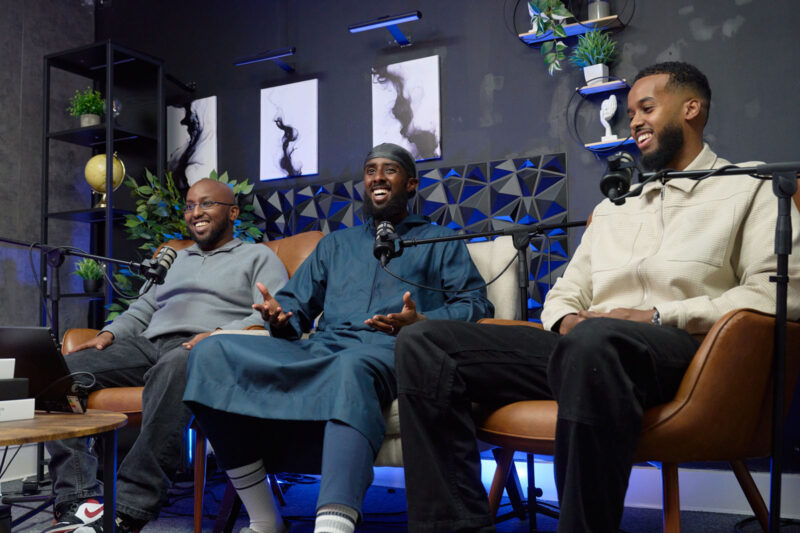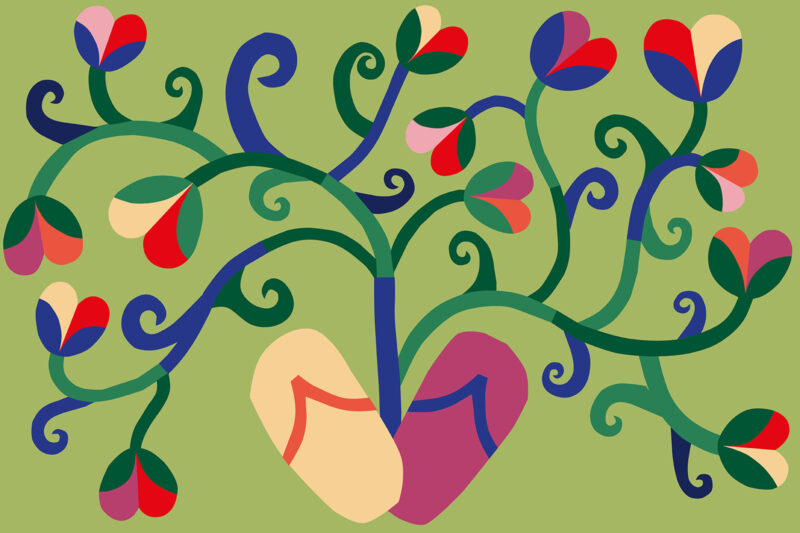‘We weren’t really asked about our religion when we wanted to adopt’
In the UK, 5,000 Muslim children are in care. Some experts believe that structural barriers are stopping parents providing culturally appropriate homes for them
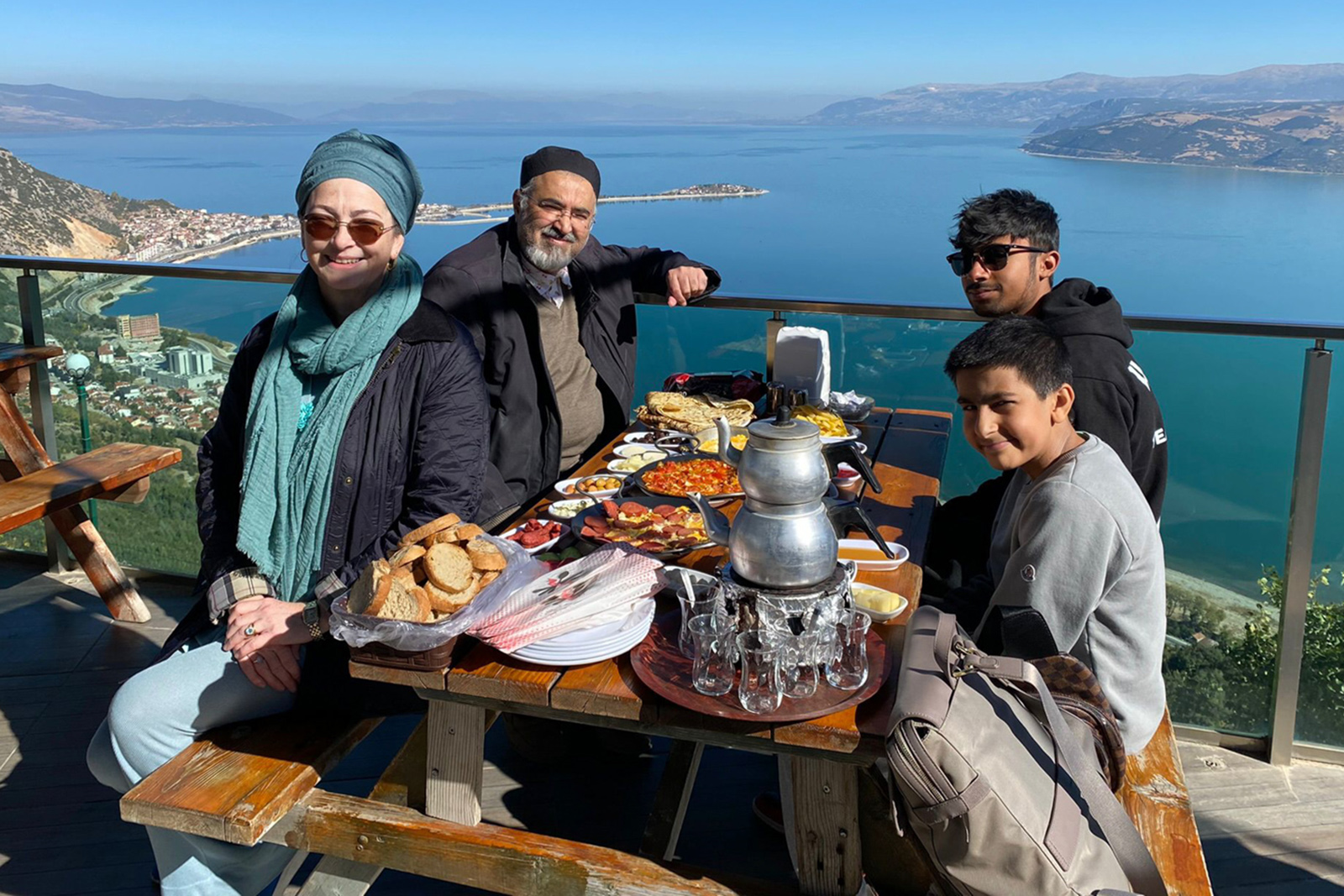
Rachel Abedi describes her two adopted sons as among the greatest blessings in her life. She and her husband, Shezad, had always wanted a large family and discussed adopting before they got married. It was only after Rachel encountered health issues following the births of her two biological children, however, that the couple decided to take the step.
“Shezad had always been interested in the idea of adopting, because he had heard stories from his parents and aunts about how informal adoption in Pakistan was fairly common,” Rachel said. “I think there were abandoned children after Partition who were taken in by families, so he was used to it.”
The Abedis adopted their first son in Pakistan in 2005 in a lengthy and complex process that took several years. Four years later, they decided to do it all over again in the UK: “We went to the adoption agency Coram, rather than to the local authority,” Rachel recalled. “They were brilliant. They assessed us really quickly and within seven months our youngest had been placed with us.”
The process did come with some challenges, though. As a mixed-race couple, the Abedis initially discovered that the local authority was reluctant to let them adopt: “I’m white English, and they were not optimistic about our prospects because they said at that time they were matching,” said Rachel.
The authority’s priority was to ensure that children in its care were matched with adopters of the same or similar ethnicity. It placed rather less emphasis on shared religion.
“I don’t think they even asked,” said Rachel, who converted to Islam in 1998. “I don’t think it was on the radar. We might have been asked ‘Are you Muslim?’, but nothing beyond that. We weren’t asked about our practice. It was all about ethnicity.”
Like Rachel and Shezad, many Muslims across the UK are keen to provide homes for children in care, but often they find they are prevented from doing so by stringent criteria placed by local authorities on prospective carers. Government figures reveal that of the 100,000 or so children in care, 5% — a total of 5,000 — are Muslim. The overall UK Muslim population stands at around 3.5%.
There remains, however, a shortage of Muslim foster carers and adopters in the UK. Reasons for this range from a lack of fluency in English on the part of prospective carers and the host family not having a separate room for the child they take in, to a mutual distrust between communities and authorities which prevents potential carers from coming forward.
Shaqib Juneja is the head of operations at My Family Group, an umbrella organisation comprising a number of initiatives that seek to improve the lives of children in care, including the Muslim Foster Network and My Adoption Family. He believes the impact of negative representation of Muslims in wider society is a key concern.
“Some people don’t even want to consider becoming a foster carer because it means they’ll be subjected to so many checks. There is a lot of misunderstanding on both sides,” Juneja said.
He added that the overarching problem is one of structural “cultural incompetence”: a lack of faith-sensitive training by local authorities and adoption agencies amid an atmosphere of growing suspicion towards the Muslim community from some sections of society, at times fuelled by sections of the media, which, at best, portray the community as insular, at odds with British values, and, at worst, involved in violence and terrorism.
Juneja also said, however, that the Muslim community has to take some responsibility: “We have many Muslims willing to give money to orphanages in Pakistan or Bangladesh or wherever, yet we have children under our noses who don’t have parental care and we’re doing nothing to support them. We’ve got to get it the right way round. These are children from our community. They need to be looked after by our community.”
Those representing government bodies are keen to point out that they make every effort to address any misunderstandings surrounding culture and religion that may be a hindrance to adoption: “We provide training for adoption panel members because we know that families coming forward have not always had a positive response from social workers,” said Sarah Johal, who was appointed by the UK government to lead the country’s national adoption strategy and works with 32 regional adoption agencies to implement the policies set out by parliament.
“We want to make sure that social workers are equipped with the tools, the understanding and the awareness about being culturally sensitive and have the language to talk to people about these issues.”
Johal pointed out that there is a waiting list of Muslim families wanting to adopt, but that many do not feel they are qualified to take in children with special needs.
“We’ve got children who have more complexities in their development,” she said. “They have additional health needs. Some have disabilities. Those are the children that we struggle to find families for. Sometimes the adopters say: ‘I’m sorry, but I’m not really sure if I can manage that.’”
Juneja said that requirements such as having an extra bedroom or a certain fluency in English create unnecessary obstacles for people who wish to adopt or foster a child.
“Many Muslims live in some of the most deprived areas of the country,” he said. “They don’t have a spare room, but that doesn’t mean they can’t be great carers.
There was a time where having a spare room wasn’t a necessity. Now it’s a rule, and it’s something we challenge.”
It’s also an issue that Rachel, who runs a support group for Muslim adopters, has come across: “It’s come up, where social workers have been really negative about multigenerational living. It’s often a revelation to them. They say: ‘Ah, OK, we didn’t realise that.’”
But adoption agencies believe such measures are important if adoptive and foster parents are to meet the needs of each child.
“There has to be a balance,” said Brenda Farrell, interim director of commercial services at Barnado’s, a charity that cares for vulnerable children. “If the child has been abused in their bedroom by a sibling or anyone else, or is a potential abuser, then we need to protect that child in a new environment.”
She takes an equally pragmatic approach to the issue of language: “The questions we ask are: Should the applicant be able to speak enough English to be an advocate for the children and represent them at professional meetings? Within a court system? The education system? If you bring in a translator, what does that mean for the protection of the child?”
One of Juneja’s main concerns is that there is now no legal requirement to record a child’s religion when he or she is taken into care. That was not always the case. The 1989 Children’s Act stipulated that a child’s culture, ethnic heritage, religious and linguistic background must be taken into account when selecting foster carers and adopters. That requirement was watered down in 2014 to prevent unnecessary delays in finding children homes. In March 2022, a House of Lords committee set up a taskforce to review the law once again. The process is ongoing.
Despite this, Rachel believes that there has been an increased awareness about the importance of religion in the matching process in recent years. “With Coram, it came up,” she said. “They told us they had a lot of Muslim children waiting for homes and some had ended up being adopted by people of different faiths, and that this was a big problem.”
Another challenge, according to Johal, is finding matches for children of mixed heritage. “One birth parent might be Muslim and the other Christian, and they might have different views about how their children should be raised. It’s a complex issue,” she said.
“Where we can’t find an exact match, we look for people who can be open to ensuring that whatever needs that child has, they can promote those needs to the best of their abilities, whether they are cultural, racial or religious.”
Meanwhile, Rachel says her adopted sons have changed her life. “I was worried about whether or not I would be as good as a birth mother. Would I be able to offer that unconditional love? It turned out to be a baseless fear. The same love is there. It’s fiercely protective love. I think the awareness of their vulnerability and of their loss makes it all the stronger. It’s a unique kind of love.”
 Newsletter
Newsletter

